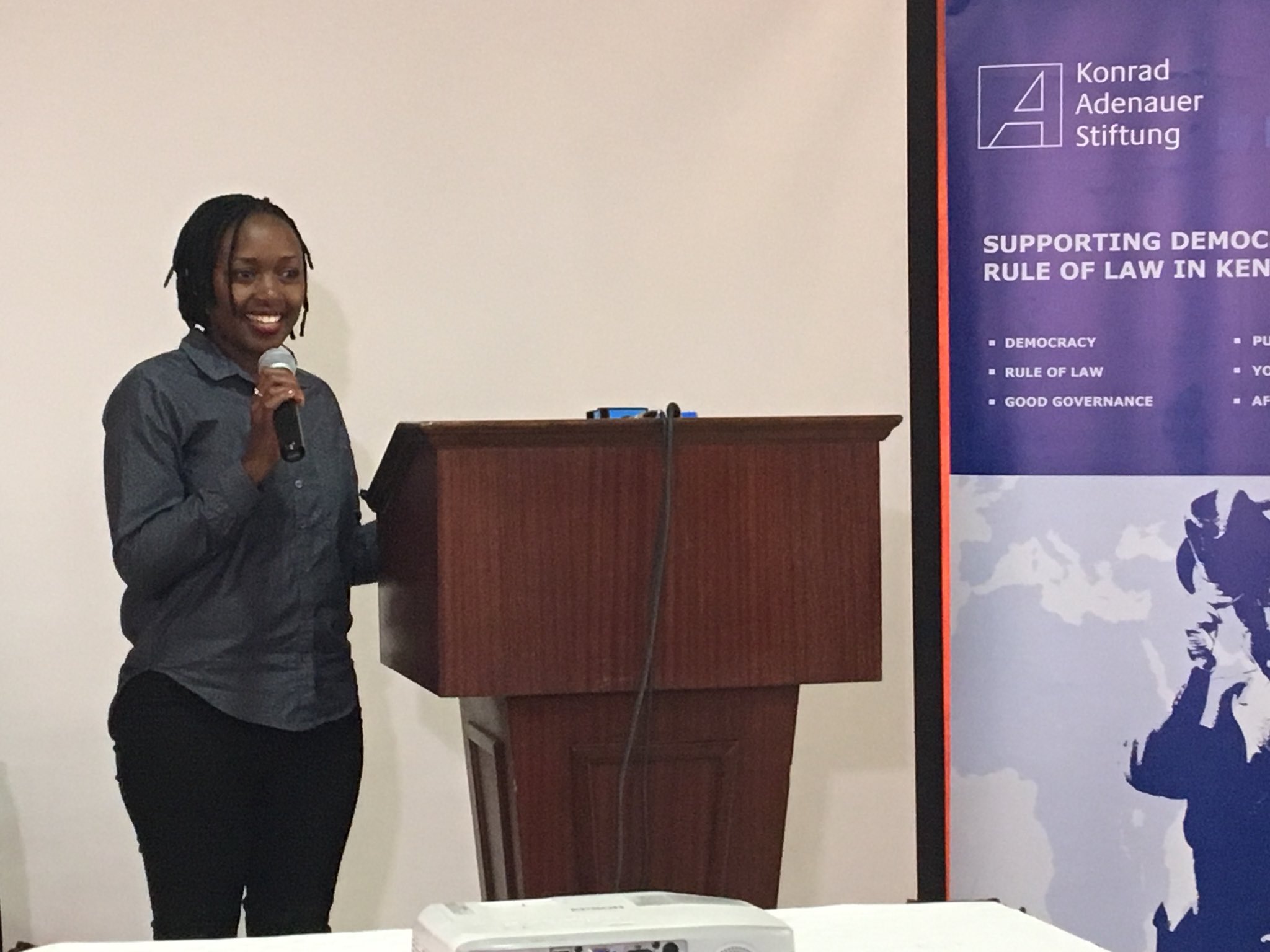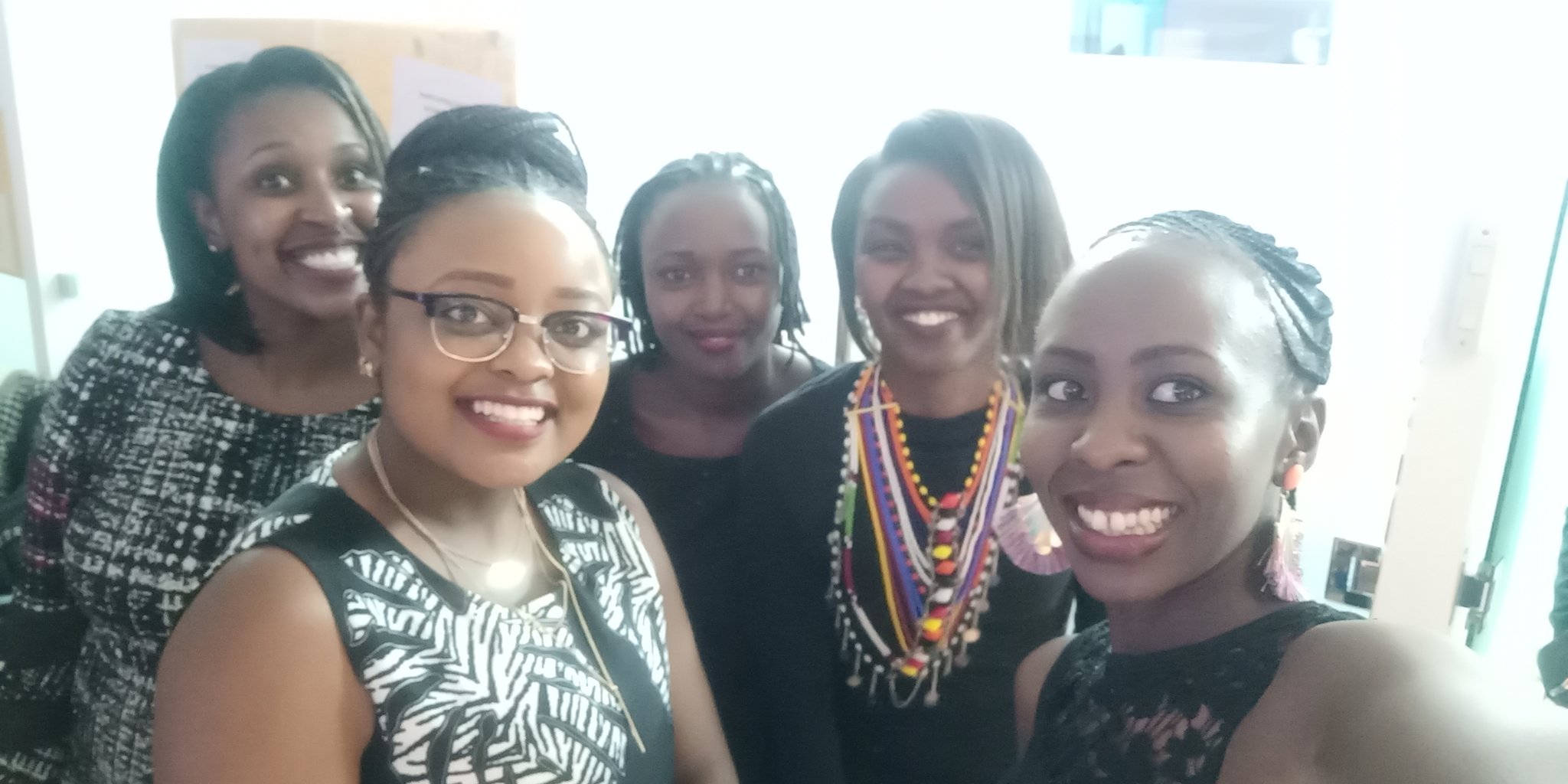Forging a path for women in Kenya

From own work in Kenya, we’ve met many inspiring individuals who give us good reason to be optimistic about the future of democracy in the country. One of those people is Ruth Mukuba, a politician who NIMD met during our work to strengthen gender representation in Kenyan politics.
From local issues to national dialogue
Being a young female politician in a highly patriarchal society such as Kenya is never easy. But more and more women are breaking down the age- and gender-related barriers that held their predecessors back.
Ruth Nyawira Mukuba, at 29 years of age, is one such young woman. She is the National Deputy Women Leader of The National Rainbow Coalition–Kenya (NARC-Kenya), a woman-dominated party that is a member of Centre for Multiparty Democracy-Kenya (CMD-K), one of NIMD’s partners in Kenya.
Ruth met NIMD through our work fighting gender discrimination in Kenya, and she became immersed in finding male and female ‘champions’ who can further the cause for equality in Kenyan politics.

Inspired by local issues
Ruth Mukuba was born to humble beginnings in rural Kenya, during the single-party era. Although the regime eventually fell, her perception of the world was characterized by what she saw growing up: vulnerable women in the countryside, the loss of local wildlife to poachers and the decimation of her local forests.
This is what drove her to study environmental sciences and learn more about how her community and its resources could be protected.
Joining the fray and hitting the glass ceiling
When Ruth graduated, she felt determined to take action to defend her community through politics. She became a member of The National Rainbow Coalition–Kenya (NARC-Kenya), one of the smaller parties in the Kenyan parliament. Ruth says she was inspired by the party’s Chair, Hon. Martha Karua – a former Member of Parliament and Justice and Constitutional Affairs Minister.
Despite NARC-Kenya being a female-led party, Ruth faced the same challenges of male dominance that pervade Kenyan society. She saw women being discriminated against because of their gender, with young women facing particularly heavy opposition. Women were viewed by the current political class as extra competition, a perception exacerbated by an already tense and competitive political environment.
The challenges Ruth faced as a women were both direct and indirect. She found Women’s League leaders would tell her to go to the Youth League, and male counterparts would then tell her to go to the Women’s League. She saw a standard being expected of her that was unrealistic in contrast to men – and single women saw themselves even further marginalized. In her own words:
“Young women do not occupy decision-making roles in political parties. They are subject to manipulated political processes, including the preparation of party lists. There is a lot of harassment, especially for young women. This is physical, verbal as well as sexual – including threats of the kidnapping of children”
These embedded challenges engendered a pattern of gender exclusion, as is sadly the case in many other countries. However, Ruth was inspired by powerful female leaders in her own community, and persisted.
With the help of her party leader, Ruth began to find ways to access the political space. She rose to the position of NARC-Kenya’s National Deputy Women Leader. And this is how she came to meet NIMD.

Collaboration with NIMD
When CMD-Kenya engaged political parties in the identification and capacity of male champions for gender equality, Ruth says she felt that the process of expanding space for enhanced women’s political participation in political parties was finally here:
“It is true Kenyan politics is masculine in nature. Any discussion around involving men in demystifying this myth was critical. I felt this would open space to even help our male counterparts understand the importance of women’s political participation in the country’s democratic processes”
Ruth’s first point of interest in this conversation was not on how male members of the party could create opportunities for women, but how the playing field could be leveled to enable women compete on a fair platform just like their male counterparts. She says:
“To me it is not always that political parties must create affirmative action programs for women, but rather they should address the barriers and deconstruct the masculine nature of our politics to give women that fair opportunities to compete. And the male leaders in our parties are the best partners in this process.”
Ruth has been part of the CMD-Kenya initiatives that seek to identify and engage senior male political party leaders and their counterparts in the women caucuses on the issue of gender and women’s political participation. These discussions took place throughout 2018 at national and county level. Ruth secured commitments from senior male leaders of the party to further expand this discussion – not only within her party but also across all political parties. Her goal now is to build on these gains to prevent backsliding by the politicians.
She took the lessons learned back to her party. NARC-Kenya soon revised its policy documents to encourage women’s political participation. Ruth explains the changes:
“NARC-Kenya has already reviewed its policy on candidate nomination and the conduct of party primaries. This is mainly where women lose representation in elections. At the moment, it is a requirement to waive nomination fees for women candidates during elections. This also benefits youth as an affirmative action group. I am proud that there was no resistance from the male champions who were identified by through the CMD-Kenya initiatives”
Pushing the parties for progress
Although Ruth has made her entry into Kenya’s political scene, she acknowledges that there is still much to be done to secure space for enhanced women’s political participation and also sustain the discussion around issue-based politics in Kenya. She is determined to make her contribution towards realizing this.
Besides the male champions for gender equality, Ruth says the broader NIMD-supported programme has provided her with opportunities to continue advancing issue-based policymaking across parties. Now she is around the table with her male counterparts from all parties, not only discussing democracy and inclusion, but also important issues that affect different segments of wider Kenyan society. Ruth is also supporting NIMD’s work on studying the cost of politics in Kenya, which examines the role money plays in Kenyan politics.